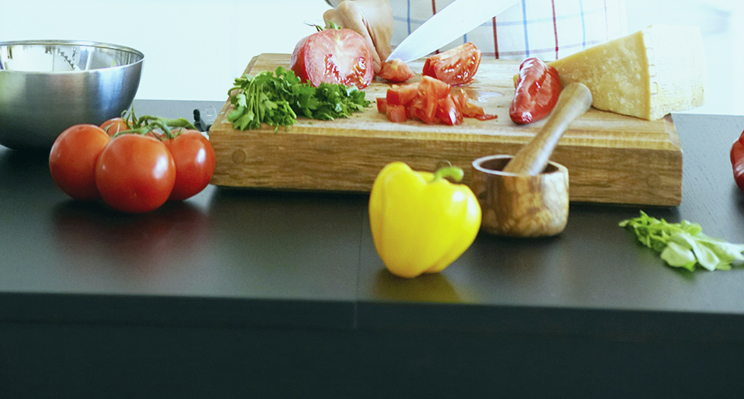More than Skin Deep: How Your Gut Can Impact Skin Health
When we have skin issues we often think about what we can put ON the skin. But, in fact, the solution could lie beyond what’s in your bathroom cupboard. Did you know your gut – usually associated with digestion – can actually influence your skin health?

Gut and Skin: The Dynamic Duo
Our gut and our skin share some similarities. Both have large surface areas and contain bacteria, but how can they be linked?
Researchers are still investigating exactly how this connection works but one potential link is through inflammation and the immune system.1 Inflammation is not necessarily bad (it’s a natural response by our body to fight infections and heal injuries), but long-term inflammation can lead to health issues.
the gut and immune system are a dynamic duo, a relationship often referred to as the “gut-skin axis”. Our gut bugs train our immune cells to know what is safe and what is a threat. Think of it like a home security system. You want the alarm to be triggered by a burglar trying to get in, but you don’t want it to set off every time the postman arrives. Our gut bugs help our immune system distinguish between the two events. They identify issues or imbalances with our gut then this can affect our immune system, which can then impact our skin and provoke/cause inflammation e.g. eczema, rosacea, psoriasis, etc. So, if there are issues or imbalances with our gut bugs, this can affect our immune system, which in turn may impact our skin and cause inflammation e.g. eczema, rosacea, psoriasis, etc.
There are lots of factors that can influence skin conditions and there isn’t always a simple solution. But our gut could hold the often-unrecognised potential to help!

What skin conditions can be linked to gut health?
Often, individuals with certain common gut conditions can have skin issues. For example, people with inflammatory bowel disease (IBD) can be prone to eczema, and vice versa. Those with coeliac disease can often struggle with psoriasis, atopic dermatitis or rosacea. Food allergies can also flare up as skin symptoms such as hives or atopic dermatitis.1 Interestingly, scientific research suggests probiotics and prebiotics may improve some skin conditions because of their impact on our gut.2
On the other hand, our skin produces vitamin D when it’s exposed to UVB light. Vitamin D is known to support gut health, so this is another example of our gut-skin axis at work!3

How can you support your gut (and your skin)?
At Love Your Gut, we like to take it back to basics. Focus on these fundamentals listed below which are backed by scientific evidence.
- Diet – if you’re a frequent reader of our Love Your Gut blogs, this will come as no surprise. Focus on increasing the number of plant foods in your diet to ensure you’re getting plenty of fibre – which our gut bugs absolutely love.4 Prioritise fruits, vegetables, wholegrains, nuts, seeds as well as herbs and spices. Fill up your plate with colour! Read more about eating the rainbow and why it’s important here.
In need of some healthy meal inspiration? Check out our recipes here!
- Exercise – whether you jump out of bed for a morning run or the idea of entering a gym makes you squirm, incorporating physical activity into your day is important for gut health.5 The government recommends doing strength exercises at least twice a week and at least 150 minutes of moderate intensity or 75 minutes of vigorous intensity activity a week. Find a form of exercise that you enjoy and don’t be afraid to try something new. Perhaps try a Pilates class, meet a friend to play tennis or head to your local parkrun. Even walking and doing housework can all help!
- Mindfulness – this phrase may seem like another wellness trend but there is evidence that this can support our gut.6 Mindfulness can look different for everyone, but essentially it means taking some time to pause, be fully present and focus on de-stressing. This could include journalling, meditating or simply closing your eyes and taking a few deep breaths.
- Sleep – most of us could do with some more sleep! Nowadays, it’s arguably easier than ever to stay up late with endless scrolling on social media or deciding to watch “just one more episode” on TV. However, disrupted sleep can mean a disrupted gut.7 When possible, try to stick to the same bedtime and enjoy a winddown period before sleep where you intentionally avoid light from your phone or TV, avoid caffeine, alcohol or heavy meals, and keep your bedroom cool, dark and well-ventilated.
So, the next time you’re tempted to buy the latest miracle-working serum to help your skin, don’t forget to give your gut bugs some love and attention too!

References
- De Pessemier et al. (2021) Microorganisms, 9(2), 353.
- Mahmud et al. (2022) Gut microbes, 14(1), 2096995.
- Bosman et al. (2019) Frontiers in microbiology, 10, 2410.
- McDonald et al. (2018). MSystems, 3(3): e00031-18.
- Monda et al. (2017). Oxid Med Cell Longev, e3831972.
- Zhang et al. (2021). Br Med Bull, 138(1): 41–57.
- Bermingham et al. (2023). Eur J Nutr, 62(8): 3135–47.

